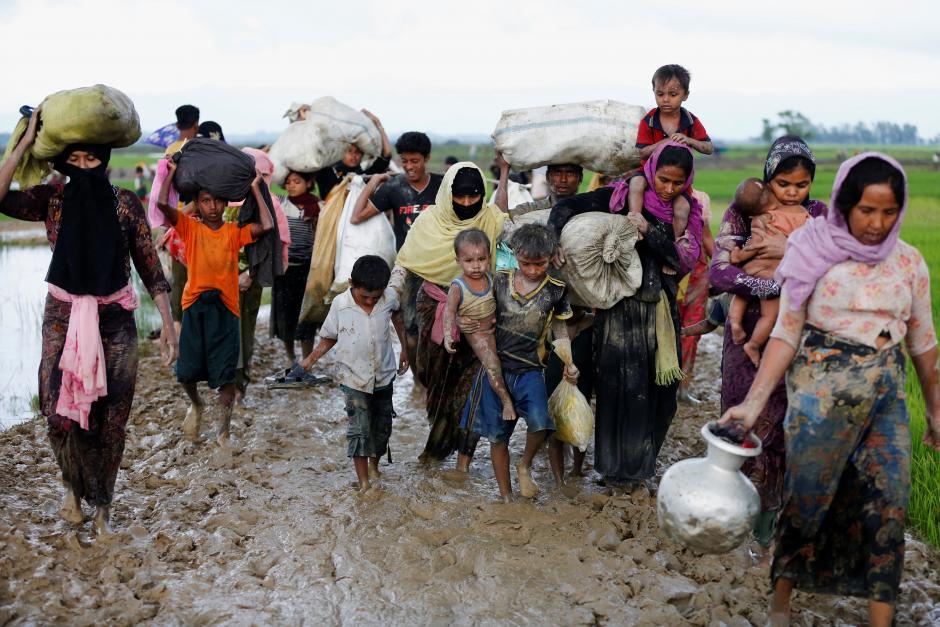What happens with Rohingya
October 1, 2017 | Expert Insights

With more than 500,000 Rohingya Muslims fleeing the region to Bangladesh, the international community has demanded Myanmar to address the crisis.
Background
The Rohingya are an ethnic Muslim minority group from Myanmar’s western Rakhine state. Their origin can be traced back to the 15th century when thousands settled in Myanmar from the Arakan Kingdom. Practicing a variation of Sunni Islam, there is reportedly one million Rohingya in Myanmar. The government of Myanmar has, however, refused to recognize them as one of its ethnic groups. They do not get legal protection from the government. The processes for them to get a citizenship is incredibly hard and often impossible.
Given their persecution, thousands have fled the region in boats. Due to violent riots, since 2012, over 110,000 Rohingya left Myanmar and headed to countries like Thailand and Malaysia. The number of refugees increased exponentially in 2015. Thein Sein, the Burmese President from 2011 to 2016 did little to offer relief to Rohingya.
Analysis
According to those who fled the region, a fresh bout of violence erupted in Myanmar on August 25th, 2017. Over half a million Rohingya Muslims fled the region as a direct result of it. In September, Myanmar blocked all United Nations aid agencies from delivering vital supplies of food, water, and medicine to those affected.
For the first time in eight years, the UN held its first public meeting on the situation. UN Secretary-General Antonio Guterres said that the violence in the region has "spiraled into the world's fastest-developing refugee emergency, a humanitarian and human rights nightmare." He added, “We've received bone-chilling accounts from those who fled, mainly women, children and the elderly.”
BBC has reported that the head of UN in Myanmar (Burma) tried to prevent human rights advocates from visiting sensitive Rohingya areas. The report claims that for four years before the current crisis erupted, the head of the United Nations Country Team (UNCT), a Canadian called Renata Lok-Dessallien tried to shut down advocacy on behalf of the group. Lok-Dessallien also prevented activists from visiting sensitive regions.
"We strongly disagree with the accusations that the resident co-ordinator 'prevented' internal discussions. The resident coordinator regularly convenes all UN agencies in Myanmar to discuss how to support peace and security, human rights, development and humanitarian assistance in Rakhine state," a statement from a UN spokesperson in Yangon said.
The US has demanded action against Myanmar military leaders. Nikki Haley, the US ambassador to the United Nations, accused Myanmar's authorities orchestrating "a brutal, sustained campaign to cleanse the country of an ethnic minority". She added that “The time for well-meaning, diplomatic words in this council has passed. We must now consider action against Burmese security forces who are implicated in abuses and stoking hatred among their fellow citizens.” She also seemingly criticized the nation’s de-facto leader Aung San Suu Kyi for not addressing the problem noting, “it should shame senior Burmese leaders who have sacrificed so much for an open, democratic Burma.”
Assessment
We believe that the current Rohingya crisis is one of the most severe humanitarian crisis that South Asia has faced in recent times. The general response of the Burmese state has been extremely callous and one of constant denial. We feel that the solution to the present crisis lies within the country. The Burmese government must be cajoled by the UN and other global leaders to find an amicable solution for the Rohingyas to return.








Comments